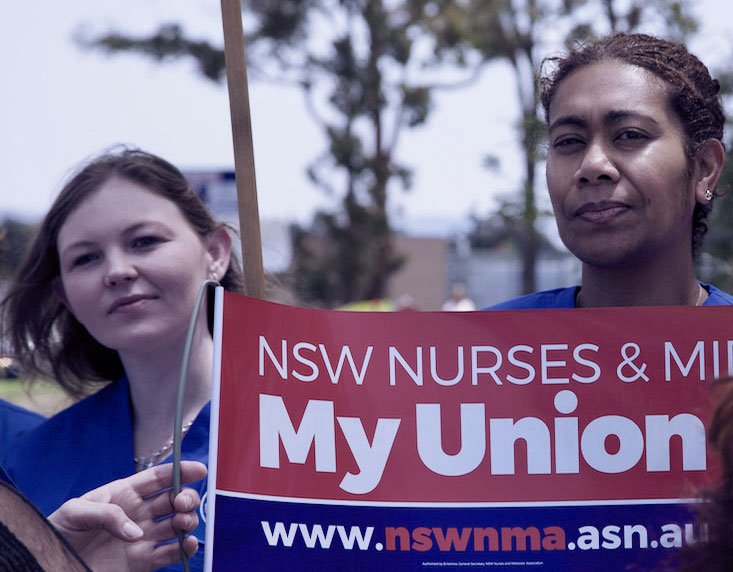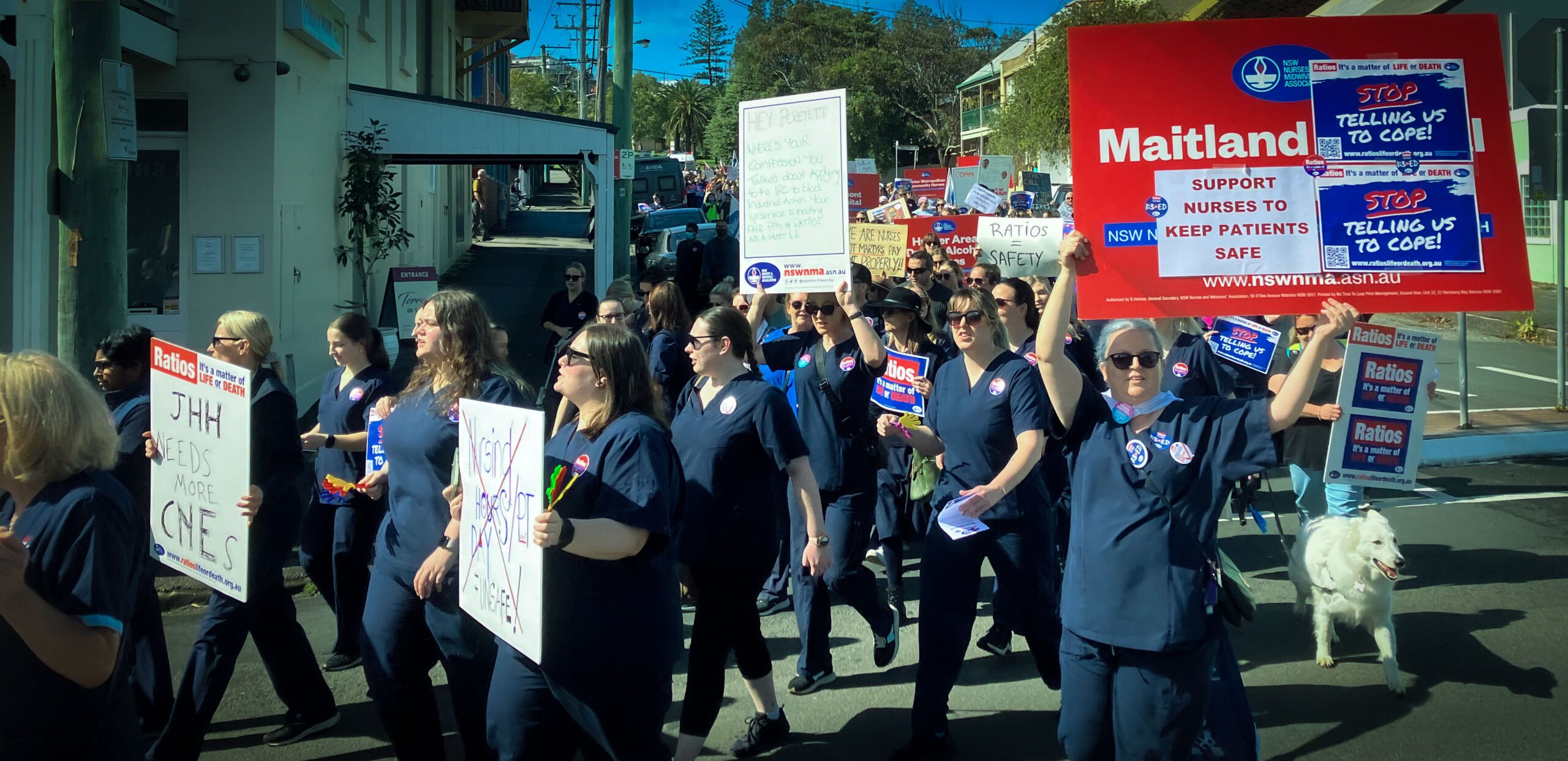 NSWNMA members at Gunnedah Hospital and community health services will rally today, 17 May, in support of guaranteed minimum staffing ratios, which provide better and safer patient care, and equal treatment for rural and regional patients.
NSWNMA members at Gunnedah Hospital and community health services will rally today, 17 May, in support of guaranteed minimum staffing ratios, which provide better and safer patient care, and equal treatment for rural and regional patients.
At the lunchtime rally they will call for the same guaranteed minimum nursing hours, in general wards, as the big Sydney hospitals such as Liverpool and Westmead – that is, a minimum of six hours per patient per day or a minimum of one nurse for every four patients. Currently there are no mandated nurse-to-patient ratios for patients in Gunnedah Hospital.
They will also be calling for the extension of guaranteed minimum nursing and midwifery levels to hospital emergency departments, high dependency units/beds, such as intensive care and the neo-natal intensive care units/beds, and community health services.
For emergency departments like Gunnedah’s the NSWNMA wants a guaranteed minimum of one nurse per three patient treatment spaces/beds, plus an in-charge nurse and a triage nurse on each shift.
For intensive care units, including neo-natal intensive care units, there should be one nurse/midwife per patient plus an in-charge nurse/midwife on each shift. In high dependency units there should be a minimum of one nurse for every two patients, plus an in-charge nurse, and in critical care units there should be a minimum of one nurse for every three patients, plus an in-charge nurse.
Community health nurses and midwives should have a maximum of four hours per shift contact time with patients, leaving four hours to attend to associated duties.
Today’s Gunnedah ratios rally details
Date: Friday, 17 May 2013
Time: 1.30pm
Venue Gunnedah Hospital, Marquis St – maternity gazebo
Speakers
NSWNMA Gunnedah branch officials
NSWNMA ratios campaign director, Lisa Kremmer, said people living in regional centres like Gunnedah are entitled to the same nurse and midwifery staffing levels in their hospital wards as the people of Sydney and Newcastle.
“It is also no longer acceptable to leave the staffing of emergency departments, high dependency units and community health centres to chance.
“There is no doubt mandated minimum staffing arrangements protect safe staffing levels. Staffing levels can be assessed against a mandated minimum requirement, which means we can act decisively when governments and hospital managers try to undermine safe staffing just to save a bit of money.
“Nurses and midwives at many of the larger Sydney hospitals and at John Hunter Hospital in the Hunter New England Local Health District have already had experience working under the first round of compulsory, minimum staffing ratios and they are clear that the ratios have provided a safer clinical and less stressed working environment.
“In the second stage of implementing this important staffing reform, we must ensure that patients at hospitals like Gunnedah have the same guaranteed minimum nursing levels in the general wards as the big Sydney hospitals and that Gunnedah’s emergency department and community health services also have guaranteed safer nursing levels.
“That is the challenge for the O’Farrell Government – to build on this first round of staffing reform and ensure every public patient in NSW, including those at Gunnedah and across the New England region, has access to the same level of safer care.
“O’Farrell Government ministers and MPs are very willing to take credit every time a new batch of nurses or midwives is employed to fill the new positions created by this first round of ratios, which were actually agreed between the NSWNMA and previous Labor government.
“Many, including Mr O’Farrell himself, were recently out boasting about employing 4000 extra nurses and midwives since the current government came to office. The fact is that is a simple head count and includes part-timers and casuals. The reality in terms of full-time-equivalents is closer to 2000, with about 1700 FTEs being the nurses and midwives required to meet the first round of safer staffing ratios.
“While welcoming the State Government’s compliance with those ratio requirements, it will be interesting to see how it reacts now that it has a chance to act in its own right and extend this reform into other important areas such as emergency departments, high dependency units, children’s hospitals, rural facilities and community health services. If it does not heed the strong message being sent by the State’s nurses and midwives and do the right thing, then this Ratios put patient safety first campaign will escalate,” Ms Kremmer said.
Background
The Ratios put patient safety first campaign was launched in Sydney on Tuesday, 19 March.
A record 214 NSWNMA branches, representing more than 30,000 public-sector nurses and midwives throughout NSW, have endorsed the NSWNMA’s ratios and wages claim, which was then formally presented to the State Government, through the Health Ministry, on March 11.
The current Public Health System Nurses & Midwives (State) Award expires on June 30 this year.
A key feature of the 2013 claim is guaranteed, safer nursing and midwifery levels for seriously ill children, emergency departments, high dependency units and rural hospitals and multipurpose services, and safer nursing and midwifery staffing arrangements in community health services.
The claim also includes two 2.5 per cent per year payrises, which will provide the majority of experienced, full-time nurses and midwives with a payrise of more than $70.00 per week, or more than $3800.00 per year, by July 2014.
Contact details
Lisa Kremmer
Ph: 02 8595 1234







